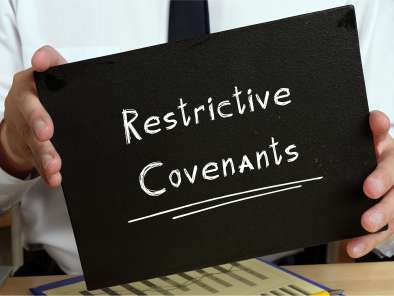Modification and discharge of restrictive covenants
The Upper Tribunal (Lands Chamber) has given a judgment on a case regarding the discharge of a restrictive covenant. In the case of Father’s Field Developments Limited v Namulas Pension Trustees Limited [2021] UKUT 169 (LC), the applicant in the matter purchased a part of the Earls Colne Golf Course from the objector in 2001. As part of the deal, the transfer deed contained restrictive covenants that prevented certain developments on the land. The applicant applied to discharge or modify the covenants. The objector to the application was the transferor, and they were unsuccessful in arguing that the covenant should not be discharged. They argued that should the covenant be discharged, they ought to receive compensation.
Background
The transfer deed contained a covenant prohibiting residential development on the land for 30 years without the written consent of the transferor unless the residential property was intended to be occupied by the transferee, their family members or any employees. In addition, there was a separate covenant prohibiting residential occupation on the Golf Course property unless they were a family member of the transferee or an employee. If the transferee did wish to carry out residential development that would not be occupied by their family or employees, they would need to obtain the written consent of the transferor.
In 2006, a cottage was built for the son of one of the director’s of the transferee. No written consent was required for the development. In 2018, the applicant asked for consent to construct 50 houses on the land. The objector refused consent. In the following year, the applicant obtained planning permission for the construction of two houses. The houses were intended to be homes for the applicant and her granddaughter.

The application
An application was made to the Upper Tribunal to discharge or modify the covenant so that occupation by other persons would be permitted. Of significant importance, the objector did not deny that (a) they had no land that would benefit from the covenants and (b) that their interest was purely financial. The objector argued that the Upper Tribunal did not have jurisdiction to discharge or modify the covenants under section 84 of the Law of Property Act 1925. They argued that if it were found that the UT did have jurisdiction, they should use their discretion and refuse the application. Further, if the covenants were to be modified or discharged, they should receive some form of compensation from the value of the development of the land.
Did the Upper Tribunal have jurisdiction?
There were a number of grounds to consider as to whether the Upper Tribunal did have jurisdiction. They considered that the proposed use of the land was reasonable, and the covenants impeded that use. It was concluded that the Tribunal did have jurisdiction under section 84 of the Act.
The Tribunal exercised its discretion in favour of the applicant. The objector was concerned that the grant of the application to discharge the covenants would set a precedent and make it more likely that a future application to develop the property would be successful. In addition, they argued that the parties were the original parties to the application and, therefore, they should be bound to the bargain.
The Tribunal held that each application is decided on its own facts and that the commercial needs of the applicant had changed radically in the 20 years since the transfer. The Tribunal, therefore, exercised its discretion to discharge the covenants.
Did the objector receive any compensation?
The Upper Tribunal held that compensation would be payable if there was a loss of amenity, and in this case, there was no such loss. No compensation was awarded to the objector.
Practical considerations when selling land for development
Some may regard the decision to discharge the covenants as harsh, as it strips the objector over control of the land-only 20 years after the transfer and without any compensation. The decision reiterates that the proper way for a transferor to secure profits in case land is developed in the future is by means of an overage rather than a restrictive covenant. This is important when the transferor does not own any land which would benefit from the restrictive covenant.
Overage covenants are positive covenants that should be negotiated at the outset of the transaction. These can be complex agreements that stipulate that if the land is developed (or other certain events occur) in the future, the land buyer will pay a certain proportion to the seller. This might be useful if planning permission is uncertain or the number of properties to be developed on the land is more than initially thought.
Here to help
If you would like more information or have any questions regarding restrictive covenants, please get in touch with our Property Litigation Team on 0161 941 400 or email the Property Litigation Team.
